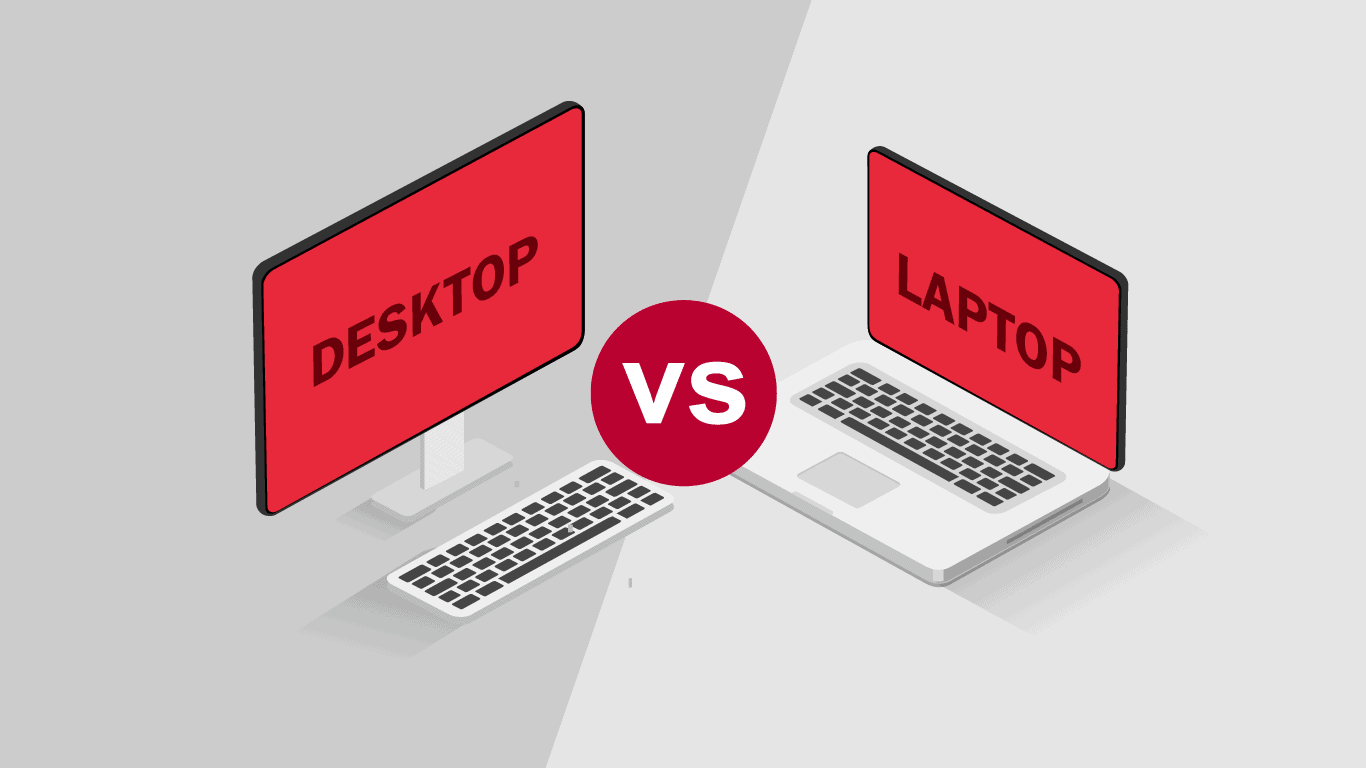Table of Contents
The world of trading has seen a significant transformation due to the proliferation of technology. Today, traders can execute trades from virtually anywhere, thanks to laptops’ portability and desktops’ power. But when it comes to selecting the ideal machine for trading, which one is the superior choice? This article examines the strengths of desktops over laptops in trading.

Desktop vs. Laptop for Trading
Desktops are better for trading than laptops because they have more powerful CPUs and support multiple high-resolution monitors, making them ideal for multitasking and data-intensive trading demands. Additionally, their upgradability and enhanced cooling systems ensure consistent and prolonged peak performance during critical market activities.
1. Performance
- Processing Power: Desktops typically come with more powerful processors compared to laptops. More powerful CPUs allow traders to run multiple applications simultaneously, handle extensive data analyses, and execute trades more efficiently.
- Cooling Efficiency: Desktops generally have better cooling systems than laptops. A well-cooled machine is less likely to overheat, ensuring consistent performance during long trading hours.
- Upgradability: Unlike most laptops, desktops can be easily upgraded. Whether adding more RAM, upgrading the CPU, or integrating a faster SSD, desktops offer more flexibility to keep the machine at peak performance.
2. Multiple Monitor Setup
- Ease of Setup: Desktops allow traders to set up multiple monitors quickly. Having several screens is crucial for traders as it allows them to simultaneously monitor different markets, news sources, and charts.
- Graphics Capabilities: Many desktops can support high-end graphics cards that can handle multiple high-resolution monitors without lagging. This is not always the case with laptops with limited graphics capabilities.
3. Ergonomics and Workspace
- Customization: With a desktop setup, traders can choose the size and type of monitor, keyboard, and mouse that best fits their ergonomic needs. This can lead to a more comfortable and productive trading experience.
- Dedicated Workspace: A desktop usually requires a dedicated workspace. A dedicated trading station can help foster a professional mindset, minimizing distractions.
4. Reliability and Longevity
- Less Wear and Tear: Desktops tend to have a longer lifespan as they are not subjected to the physical stresses that come with the portability of laptops.
- Power Stability: A sudden loss of power can be devastating for a trader. Desktops, being stationary, can be easily connected to uninterruptible power supplies (UPS) to prevent abrupt shutdowns during power outages.
5. Cost Efficiency
- Price-to-Performance Ratio: Often, desktops provide a better price-to-performance ratio than laptops. A trader usually gets a more powerful desktop than a laptop for the same price.
- Maintenance: Should something go wrong, desktop parts are generally easier (and often cheaper) to replace or upgrade than laptop components.
Considerations
However, the edge desktops have over laptops doesn’t mean they are the definitive choice for every trader. Laptops offer portability and flexibility that desktops can’t. Laptops might be a more suitable choice for traders who travel frequently or prefer not to be tied down to a single location.
Conclusion
For traders prioritizing performance, reliability, and a high degree of customization, desktops stand out as the better option than laptops. They offer robust capabilities to handle trading demands, from multitasking across screens to ensuring consistent performance during critical market movements.
While laptops provide the advantage of portability, those serious about trading might find the benefits of a dedicated, powerful desktop trading station hard to resist.
























